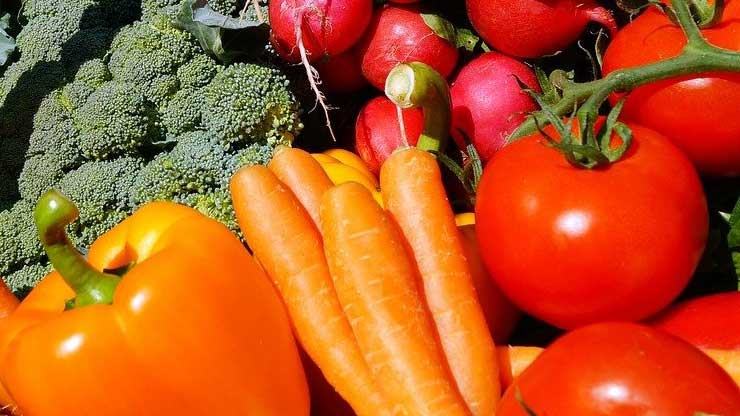
North Carolina is a strong national producer of fresh and processed vegetable commodities, serving local and international market demands. The U.S. Agriculture 2012 report ranked the state a top ten vegetable producer in sweet potatoes, cucumbers, tomatoes, peppers, squash, cabbage, watermelons, and sweet corn.
Through North Carolina Cooperative Extension the vegetable specialists provide valuable research and relevant information to vegetable growers. Specialists support the industry by addressing organic, sustainable, and economic solutions for soil fertility, weed, insect, and disease control. NC State University's researchers and educators introduce new crops, technology, practices, and techniques. The multidisciplinary group of county agents and vegetable specialists have a proven track record in working with individual farmers and commodity groups in maintaining and growing the North Carolina industry.
The Department of Horticultural Science generates detailed information leaflets for asparagus, broccoli, celery, cucumber, greens, eggplants, peppers, squash, tomatoes, watermelon, root crops, and miscellaneous vegetables.Vegetable Resources
Vegetable Production The Vegetable Production portal is a comprehensive resource for commercial growers, home gardeners, and Extension agents. The material covers cabbage, tomatoes, peppers, production, postharvest handling, management, budgeting, marketing materials, and more.
Soils & Fertility
The Soil Science program is internationally recognized for research and education outreach. The program website serves as a multi-industry asset for water quality, nutrient management, biofuels, soil erosion, crop production, and waste management.
Vegetable Plant Breeding Research
The vegetable breeding and applied genomics program is an interdepartmental and college effort that is actively developing new cultivars, germplasms, parental lines, and pesticide resistance. Vegetable crops researched include bean, cabbage, cantaloupe, specialty melon, cucumber, gourds, potato, sweetpotato, tomato, and watermelon.
Recommended Vegetable Publications
- Consumer Vegetable Publications
- Food Safety for School + Community Gardens
- Horticulture Information Leaflets
- NC Extension Gardener Handbook: Vegetable Gardening
- NC Fresh Produce Safety
- Southeastern Vegetable Crop Handbook
- Vegetable Disease Information
- Vegetable Gardening: A Beginner's Guide
- Vegetable Production Publications
- Weed Control in Vegetable Gardens